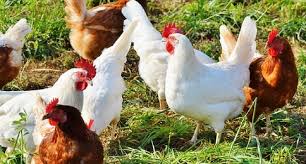
How to start poultry business
Poultry rearing whether as a hobby or as a business gives great pleasure, satisfaction and returns when done correctly.
These tips from https://farmright.co will teach you to build your farm gradually, learn on the job, fix operational problems quickly, and keep proper records.
What you need to raise chickens
Capital/money
This is where to start, poultry is capital intensive, but the rewards are worth it. First, decide on the size of your farm – backyard farm or buying a piece of land for farming. Every farmer’s dream is to build a very big farm, but it’s important that you learn and grow towards a big farm. Most farmers start small by using the land they already own or using their backyards and it’s advisable you do the same unless you have a whole lot of capital to spend.
Here’s an approximation for your poultry farming income if you are growing broilers.
- If you are doing 100 – 1,000 birds, you need about N100,000 – N700,000 to raise them and your revenue will be within N200,000 naira – N3m.
- If you are doing 1,000 – 3,000 birds you need about N800,000 naira – N2.5m.
And the bigger your scale the larger your profit, and once you have your capital costs completed, you can use the structures and equipment for a long time. For new farmers, there are many places where you can rent this equipment.
It is best to start with a bit of your savings, typically within 10 per cent – 30 per cent of your savings and when you truly understand the business and have demonstrable revenue then you can apply for a bank loan or overdraft.
Remember, start small and let financial success dictate your rate of expansion.
Farm location
Your location says everything about the success of your poultry. Poultry farms are best situated in rural settlements where the cost of land and labour is relatively cheap. However, keep in mind there must be a good transport/road network and access to water. It must also be easily accessible for you or the poultry farm manager (in other words, your farm should not be too far from you or whosoever will manage the daily affairs of the poultry).
Poultry breed/hatchery
This goes hand in hand: The breed of your poultry and its hatchery source. Depending on the type of chicken whether meat chicken such as broilers and cockerels or egg laying type (layers,) you must get a breed that maximises the potential of your desire from a very reputable hatchery that has a history of good service.
It is important to note that the quality of day-old chicks you get is the foundation for raising healthy birds. So when buying day-old chicks, make sure you commit a lot of time into researching and asking questions about each hatchery you want to buy from and the breed of chicken before making a purchase. If you do this wrong, you have set yourself up for failure.
Housing system and poultry farm equipment
There are different things you need to consider when building pens for your poultry. These things will inform the kind of housing system you will adopt for raising your healthy chickens. House systems are grouped as an intensive, semi-intensive or extensive system. For new farmers, you have to select a rearing system that suits your purpose/capital available. The extensive and semi-intensive system is majorly adopted by backyard farmers or farmers with access to large acres of lands where the birds can graze freely with good access to forage and sunlight. Poaching is a major disadvantage to this system and large scale farmers cannot win with this method.
The equipment used for rearing poultry is relative to the rearing and housing system adopted. Common equipment used are feeders, drinkers, heaters, brooders, cages, crates, et al with diverse types, brands and specifications all dependent on factors such as capital, housing and rearing system.
Feeding and water
Eighty per cent of all your efforts, resources and time must go into this. You have done all that is necessary to come this far, and this now will become your daily work. You have to ensure your birds always have access to clean water on a daily basis. And this is especially true when it comes to laying birds. If they do not see water for an extended period of time, their egg production will suffer for a long time.
The same goes for feeding. You have to ensure your birds get good access to well-balanced ration feed that suits their production levels. Feeding and watering your poultry will be your biggest operational challenges.
Medications, vaccinations and biosecurity
Now is the time to call your vet doctor and in time. There are routine medications and vaccinations that ensure the wellness of your birds to keep them safe from viruses, bacterial infections, pathogens and just in case, they catch an infectious disease. You critically need the advice and consultation of a very good vet doctor and do not forget general biosecurity as they say prevention is better than cure. Some very large poultry farms were completely wiped out due to a disease or carelessness that could have been prevented especially in 2007/2008 when the bird flu was prevalent in Nigeria.
Marketing and sales
After all your diligence and hard work, you want some profit or satisfaction from your labour. This is where you dot all your ‘I’s and cross all your T’s. And as they say, before you embark on a journey, know your destinations. It is important you have concluded on how you want to sell your poultry produce knowing that they are perishable produce. So storage and transportation are major factors to be considered.
Record keeping
Daily records should be kept. These should include space to record mortality, age, feed consumption, water use, vaccination and medication done, daily egg production, and records of any management or disease problems. These records are very valuable in planning for future poultry projects, disease control programmes, and making estimations and forecasts.



